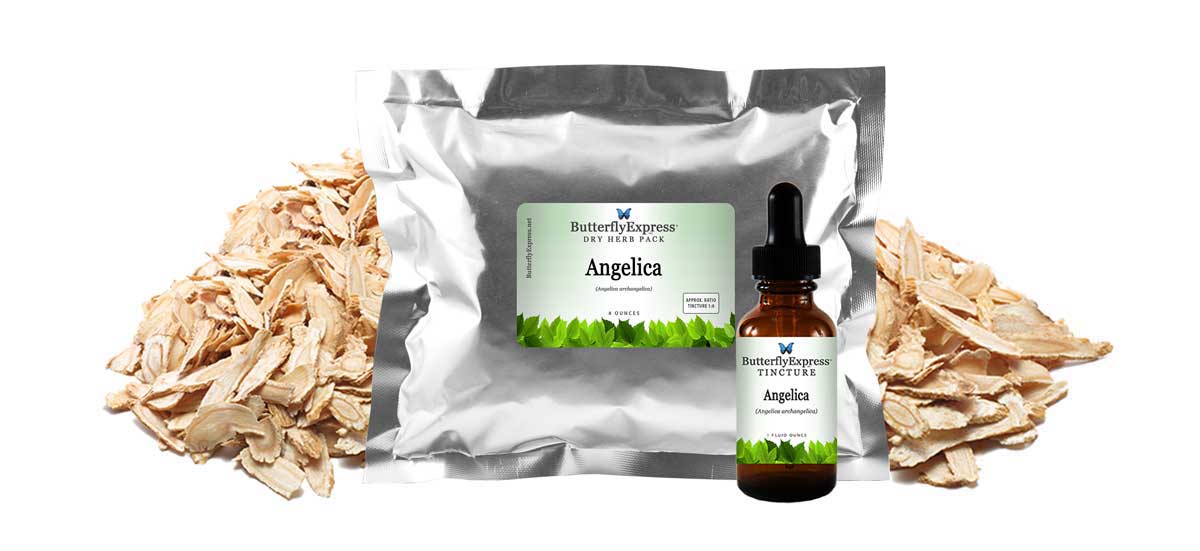|
Angelica Angelica archangelica PART USED: Root PROPERTIES: Carminative, Tonic (reproductive, digestive), Antispasmodic, Expectorant, Diaphoretic, Diuretic SYSTEMS AFFECTED: Digestive, Reproductive, Muscular POSSIBLE USES: retained placenta, pneumonia, pleurisy, stomach and intestinal cramping and gas, suppressed menstruation, wound healing, suppressed urine Jethro Kloss claimed that such wonderful results were obtained by the use of this plant that it was given a name meaning “archangel.” He listed it as effective in diseases of the lungs and chest, stomach and intestinal tract, kidney blockages, suppressed menstruation, sluggish liver and spleen, and expelling the placenta after birth—midwives certainly have seen this effect. While Angelica is considered an antispasmodic, it certainly increases the cramping pains needed to expel a placenta. Kloss also claimed that a powder made from Angelica Root, dropped into an old ulcerated wound would both cleanse and heal the wound. Angelica is useful for coughs, bronchitis and pleurisy, especially if the illness is accompanied by fever or preceded by a cold. As a digestive agent, it has been found useful in stimulating the appetite and is known to act as an antiseptic in cystitis and urinary infections. Angelica, in old herbal texts from Europe and other places, is highly regarded for protection against contagious diseases, for purifying the blood, and for curing nearly everything imaginable. It was even considered effective against a wide range of poisons. A close cousin, Angelica sinensis, known as Dong Quai shares some characteristics with the archangelica variety but also has some unique characteristics. The sinensis variety appears to be much more effective for reproductive and women’s complaints. ©Copyright Butterfly Expressions 2020, 2024 |

Purchase Angelica Products Here |

- Butterfly Expressions LLC
- Empowering Yourself
- OFFICIAL SITE